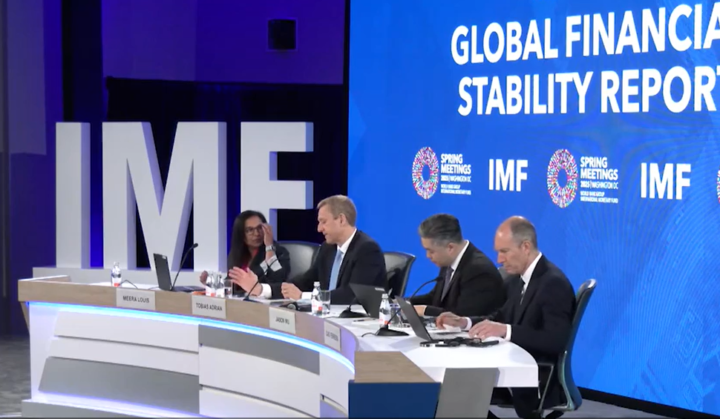
The International Monetary Fund (IMF) is concerned about the “growing influence” of non-bank financial institutions (NBFIs) on global financial stability.
The NBFI’s, said to cover a broad array of intermediation activity, include insurance companies and pension funds.
They also include investment funds (mutual funds, exchange-traded funds, hedge funds, private equity, and private credit), and finance companies.
Advertisement
In its Global Financial Stability Report (GFSR), launched on Tuesday at the 2025 IMF/World Bank spring meetings in Washington DC, the lender called for “improved” regulation of the NBFIs, stressing the increased exposure of banks to them.
“As we move into new analysis in this April 2025 GFSR, we highlight the growing role of nonbank financial intermediation (NBFI) and the increased exposure of banks to NBFIs.
“The linkages between banks and nonbanks have been growing, increasing the NBFI’s influence on systemwide financial stability.
Advertisement
“In light of these considerations, improving the regulation of NBFIs should remain a priority.”
The fund acknowledged that important advances have been made to reinforce the soundness of NBFIs.
The progress, the IMF said, includes reforms to money market funds, limits to liquidity risks in mutual funds, margin-setting in central counterparties, counterparty risk management practices for broker-dealers, and trading rules in exchanges and electronic trading platforms.
HOW NBFIs THREATEN GLOBAL FINANCIAL SYSTEM
Advertisement
In an email statement to TheCable, the IMF explained that as the NBFI sector grew, so has its aggregate leverage level and the nexus with the banking sector from which they borrow.
This, the director noted, raises “the specter of weakly managed” nonbank financial intermediaries being pushed to deleverage when they face margin calls and redemptions.
“For instance, some hedge fund strategies have seen a steady increase of leverage recently, potentially exacerbating sell-offs, with implications for the broader financial system,” the statement reads.
“The strong growth of NBFIs in financial intermediation can generate alternative sources of financing for firms, better capital allocation, and greater market efficiency through activity in capital markets.
Advertisement
“However, reaping these benefits requires policy steps to contain risks to financial stability.”
The institution said it is crucial to strengthen policies that mitigate nonbank leverage and other vulnerabilities.
Advertisement
The lender added that enhanced nonbank reporting requirements could help supervisors develop a system-wide and cross-sectoral perspective of risks and “distinguish poorly governed and excessive risk-taking institutions from those that contribute more positively to financial intermediation”.
‘DATA AVAILABILITY REQUIRED TO HARNESS NBFIs BENEFITS’
Advertisement
However, the report said data gaps preclude a complete and timely assessment of vulnerabilities, challenging sound decision making for private sector participants and policymakers.
“To harness the benefits from the growth of NBFIs, it is paramount to strengthen data availability for risk monitoring and assessment,” the report said.
Advertisement
“This will enable the private sector and supervisors to have a systemwide view of risks and single out poorly governed institutions that take excessive risks.”
Better data will also ensure that national authorities have the appropriate tools to manage risks effectively, the organisation said.
Speaking more broadly about financial markets, the IMF said sound trading arrangements and infrastructures are essential for maintaining macro-financial stability.
“To ensure the efficient and reliable operation of payment and settlement systems, it is necessary to prioritize the interoperability of various platforms, particularly across borders,” the report reads.
The institution added that embracing innovative technologies — such as blockchain and artificial intelligence — can significantly enhance the efficiency and security of these systems, “ultimately contributing to a more stable financial environment”.









